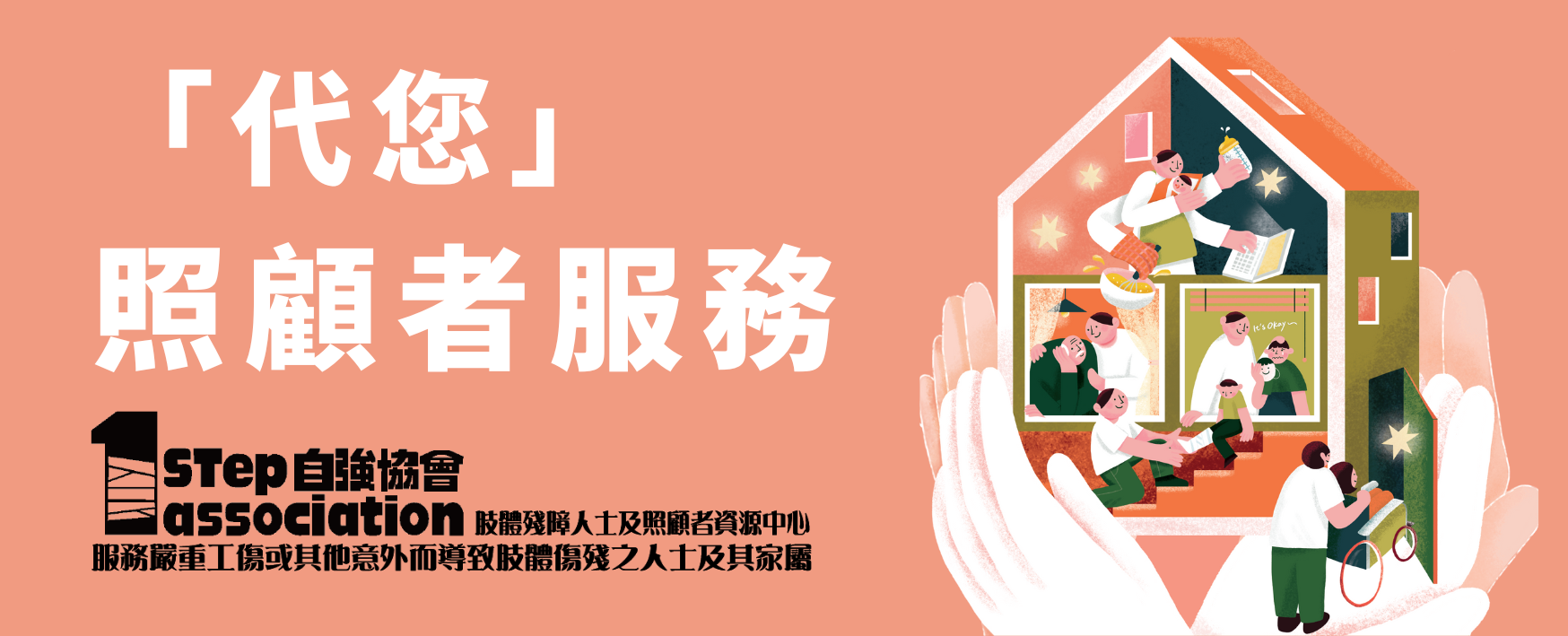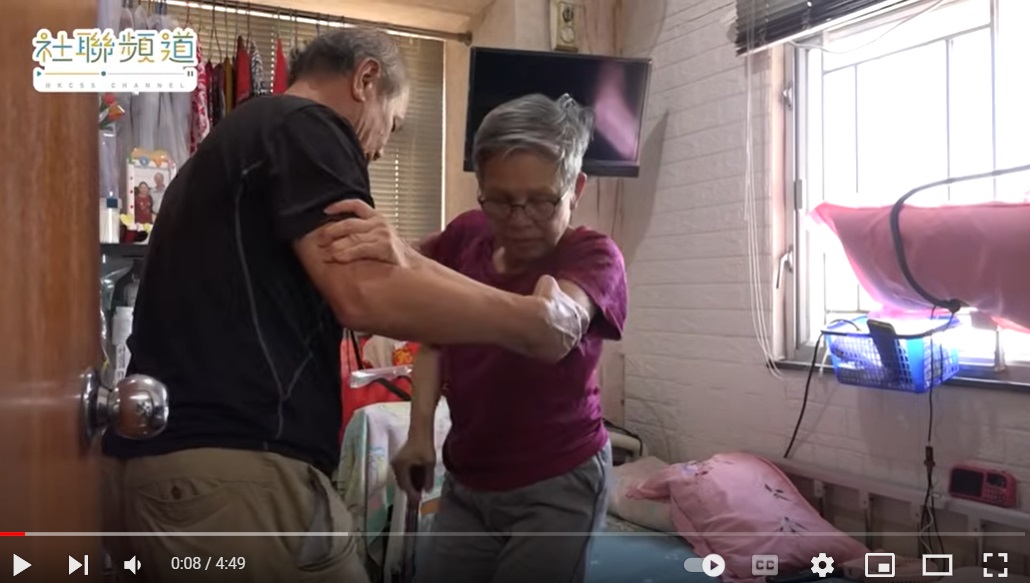According to the Census and Statistics Department, there are currently around 530,000 people with disabilities in Hong Kong, of which 200,000 require assistance in carrying out their daily activities due to various disabilities and long-term illnesses. Most of the carers are identified as family members living with them, who worry about potential accidents when leaving wheelchair users alone at home. As a result, it is common for carers to stay close to wheelchair users and accumulate stress over time, both physically and mentally.
Therefore, J.C.DISI, the Hong Kong Council of Social Service (HKCSS) and 1st Step Association have jointly organised the “Community Support for Carers” — Build a Community Support Network for Carers of Wheelchair Users Program. The program aims to build a community support network for carers of wheelchair users, providing respite care through the mobilisation of volunteers. These volunteers visit the homes of wheelchair users and offer health-related checks, leisure activities, and knowledge learning activities as services. The project hopes to provide wheelchair users with regular home support through high-quality volunteer services, enhancing the confidence of wheelchair families in substitute carers and increasing their willingness to utilise community support. Simultaneously, family carers can let go of their caregiving responsibilities temporarily, allowing them to find “me-time” and take a breather without having to shoulder the caregiving responsibilities alone.
The 1st Step Association was established as a non-profit institution in 1999, comprising of social workers, doctors, lawyers and workers sustaining injury suffered on their jobs with the aim to help one another. The association is committed to caring about the living conditions of both the physically disabled and their caregivers. It provides one-stop support services such as family and rehabilitation services, together with knowledge about labour rights. Additionally, the association encourages people with physical disabilities to develop self-confidence and reintegrate into the community through different recreational activities, volunteer work and skills trainings, contributing to the society by enacting the spirit of “differently abled, unyieldingly seeking self-improvement, and helping others help themselves”.
Project Process
Volunteer Recruitment & Construction of Service Content
This project has recruited 8 regular volunteers and 20 PolyU Nursing students. They have conducted home visits to 9 wheelchair families from the 1st Step Association between January and August 2023 with the aim to provide family carers an opportunity to recharge. To equip volunteers with knowledge needed to design activities that meet the expectations of wheelchair users, opinions were collected beforehand from participating families in the form of “dim sum sheets”. This allowed them to choose activities that they are most interested in. Among the options provided, the most popular activities chosen include health check-ups (e.g., blood pressure and blood sugar measurements), muscle-strengthening and pain-relieving exercises, and obtaining community information (e.g., opening hours of public facilities and accessible environment).
To promote flexibility and engagement from different parties, the service content and schedules of the project were jointly formulated through discussions between volunteers and wheelchair families. Activities were designed and arranged based on the abilities and interests of the service recipients. Volunteers and students were also encouraged to proactively propose optional activities related to their personal expertise or interests, such as:
|
Information Technology Learning |
Entertainment & Leisure |
|
|
With reference to the choices made from “dim sum sheets”, the project team also bought various cutting-edge tools for volunteers to borrow. Notable examples include iPads, Switch technology (such as "Ring Fit" and "Sports Resort"), and modern board games. These tools prioritise interactive user experiences. In addition to allowing wheelchair users to access the latest products and increase their activity levels, these tools are also valuable in enhancing relationship building through joint activities between volunteers and wheelchair users.
In the past, responsible organisations would usually take the lead in arranging the service content for each volunteer home visiting service, with volunteers and service recipients being the executor and beneficiaries respectively. Unlike this traditional service model, this pilot project aims to integrate design thinking to construct service content innovatively, allowing service recipients to vote on the activity areas they are interested in using “dim sum sheets”. The details of optional activities would then be discussed with volunteers, enabling them to become service planners together. This trial project empowers service users to take ownership, fostering working partnerships with volunteers and increasing their autonomy within the entire project process
Mid-term Gathering
In June 2023, we organised a gathering and invited all service recipients and volunteers to attend. The event sponsor, BOBO, arranged barrier-free transportation and rehabilitation buses to pick up and drop off wheelchair families, making it convenient for volunteers and families to go outdoors together. In addition to facilitating interactions between wheelchair users, carers, and volunteers, the project staff also took this opportunity to collect opinions. Participants were encouraged to share their experiences and feelings, fostering a sense of mutual reminder and learning from each other.
In addition to the BBQ session that day, the project team also organised different ice-breaking activities and interactive games for volunteers to learn more about people with physical disabilities from diverse backgrounds.
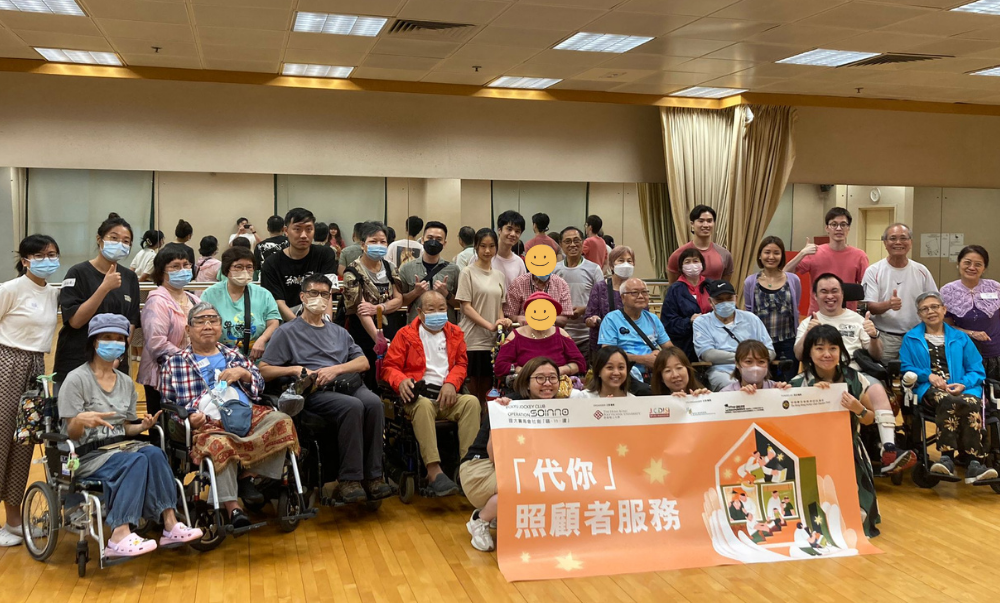
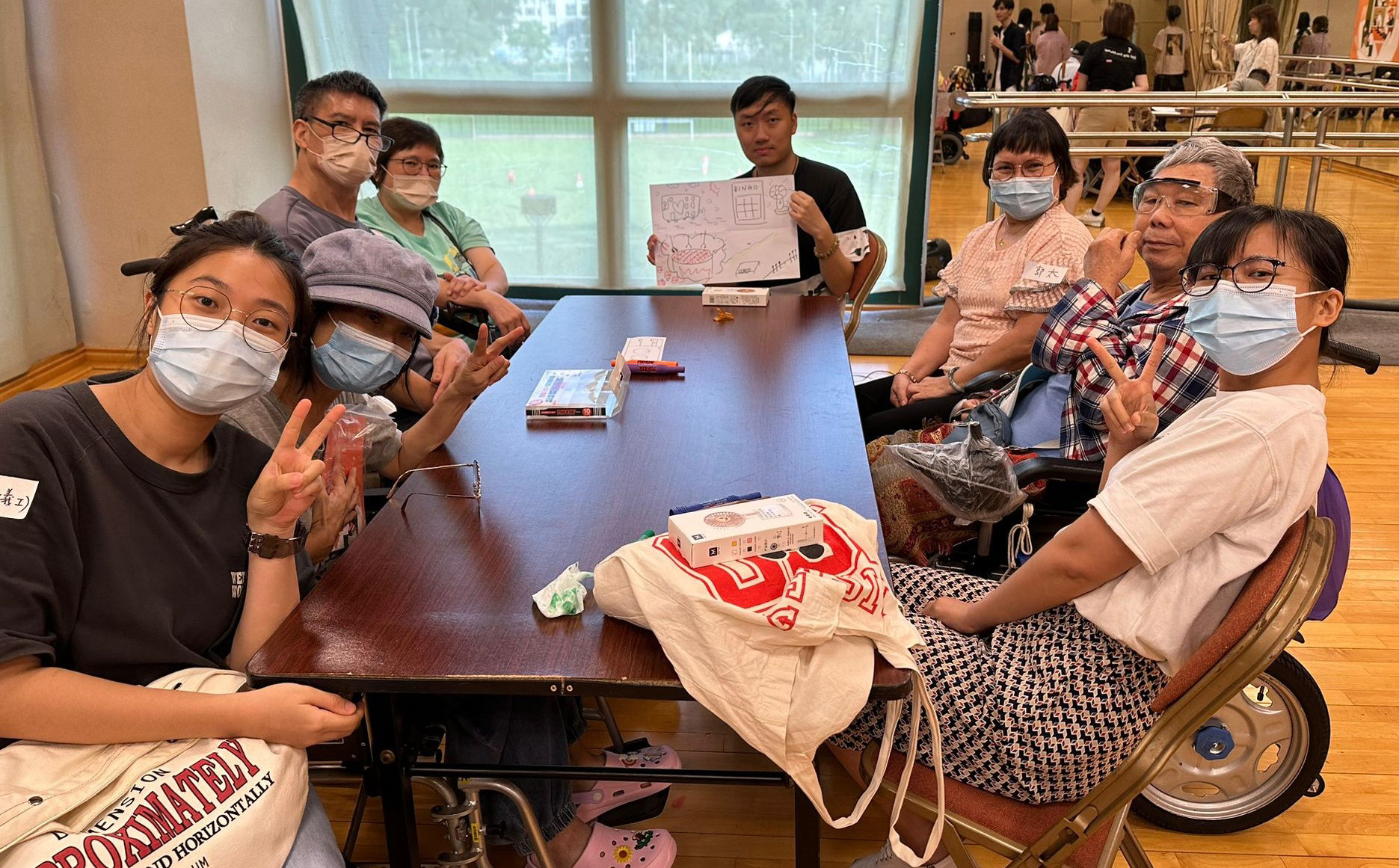
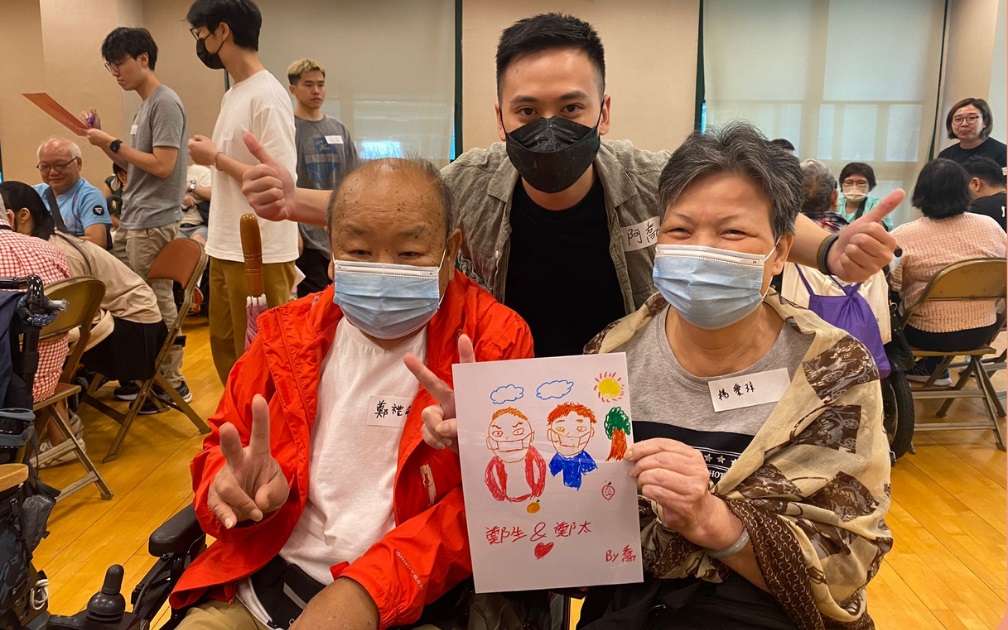
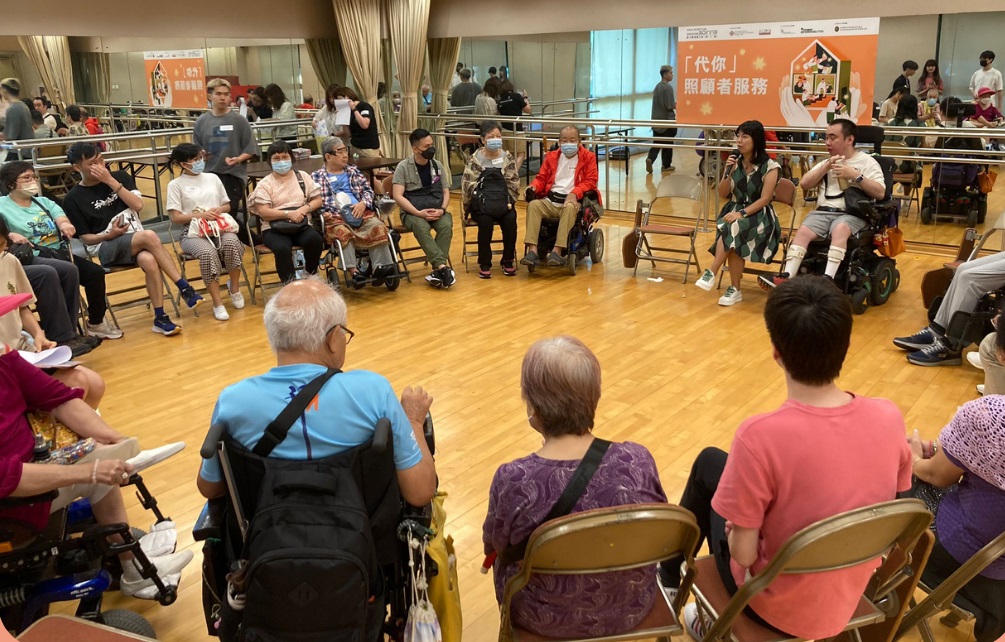
Gains from This Project
“These few hours are like a vacation for me, without having to worry about my wife. Unlike before, I don’t have to worry about something happening at home and rushing back to the apartment. At least I can go out for a few hours and I feel reassured because I know my wife isn’t alone. Sometimes, there are even two volunteers who come to accompany her. My wife would tell me how happy she is today, what games she played and the things she talked about. Hearing her say these makes me feel more at ease.” – Carer
“After doing all sorts of activities with wheelchair users, I have gained a better understanding on how to get along with them. For instance, when entering and leaving a shopping mall, I will help open the door to let them go first.” – Nursing Student
Video
